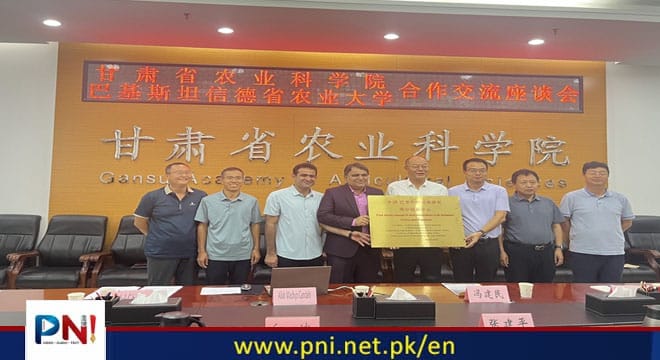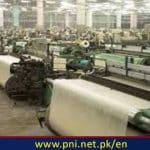BEIJING, Jul 26 (APP): The average production of flaxseed in Pakistan is as low as 692 kg per hectare, thus it is of great importance to cultivate flax varieties suitable for Pakistan’s climate and soil conditions as early as possible, Zhao Wei, Researcher at the Crop Research Institute of Gansu Academy of Agricultural Science (GAAS).
Empowering flaxseed farmers through agro-technology is just our beginning. Our collaboration project could contribute to the economic development of both sides by creating job opportunities, increasing trade, and improving the overall efficiency of the flaxseed value chain, Prof Dr. A. W. Gandahi, Chairman, the Department of Soil Science at Sindh Agriculture University, noted at a flaxseed collaboration seminar held on July 24.
Pakistan is striving hard to increase oilseed production. The first-ever comprehensive National Oilseed Policy has been proposed to enhance the production of edible oils and reduce dependence on imports, as well as improve the profitability of the oilseed growers.
By now, Punjab and Sindh are the major growing provinces of flaxseed in Pakistan, accounting for 47% and 53% of the area respectively. However, the area under flaxseed has remained static (9000-9500Â hectares) for the past fifteen years, Prof Gandahi mentioned that it is imperative to increase the area and yield of such an important cash crop.
Whereas, Flaxseed farmers in Pakistan are troubled by a series of barriers, including low prices, Irrigation water shortages, lack of quality seed and the archenemy, climate change, CEN reported.
Overall, addressing these challenges requires a concerted effort from the government, research institutions, and the private sector to provide technical support, improved seed varieties, and training to farmers. The agricultural cooperation between Pakistan and China should never be ignored, Prof Gandahi pointed out.
Addressing the seminar, the Prof emphasized that China, as a major producer of agro-products and a provider of advanced technologies for cultivation, such as seed development, irrigation, and mechanization, could share Pakistani farmers with advanced technologies.
Besides, being the world’s largest consumer, China could share more opportunities, by which Pakistani growers can increase their exports, thereby improving income and contributing to the growth of the value chain in Pakistan.
Beyond all question, the collaboration between Sindh Agriculture University Tandojam and Gansu Academy of Agricultural Sciences could facilitate the transfer of knowledge and skills between Pakistani and Chinese farmers, researchers, and experts. Through Joint R&D, the challenges faced by flaxseed farmers in both countries will be solved gradually.
The unveiling ceremony of the China-Pakistan flax research and innovation hub was also held on the same day.
It is learned that the new flax varieties of GAAS, the Longya series, are all selected according to the climate conditions of dry with little rainfall in Northwest China. In the planting experiments, the yield is generally more than 10 percent higher than that of the local varieties, and the resistance to diseases and insect pests is more satisfactory.
Follow the PNI Facebook page for the latest news and updates.









